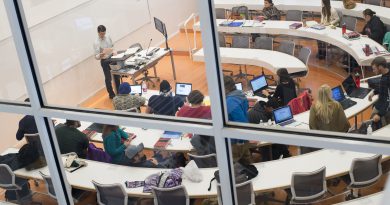Curiosity as a Compass
Curiosity may be one of the most undervalued tools in our pedagogical toolkit. As higher education grapples with shifting policies, rapid technological change, and complex student needs, curiosity can do more than spark engagement. Consider the following articles that reframe how we can approach rigor, mentorship, and equity in the classroom during uncertain times.
- How to Make America Smart Again (Inside Higher Ed)
Steven Mintz calls for a redefinition of rigor that goes beyond workloads and grading policies. He suggests that when students are challenged to explore big, complex questions (and supported in doing so), they gain deeper critical thinking skills and a stronger sense of academic agency. This form of rigor invites students to wrestle with uncertainty, rather than avoid it. - How to Mentor Like a Coach (The Chronicle of Higher Education)
Maria LaMonaca Wisdom advocates for a shift in how we support students from less prescriptive advising to more open-ended dialogue. By using curiosity as a mentoring tool, faculty can model reflective thinking while also empowering students to navigate ambiguity with confidence. - Ending DEI in Higher Ed Has Larger Implications for Our Nation’s Future – We Can Fight Back (Diverse: Issues in Higher Education)
Yvette M. Alex-Assensoh reminds us that inclusive education is a pedagogical approach rooted in curiosity about others’ experiences, histories, and identities. As institutions reconsider how inclusion shows up in academic spaces, faculty remain key to modeling the kind of inquiry that leads to empathy and understanding.
When you start planning for fall (after taking a moment to rest this summer), consider where curiosity shows up in your course design. What kinds of questions do students get to ask, not just answer? Where are they encouraged to explore ideas that don’t have neat conclusions? How do you invite uncertainty into your assignments, discussions, or mentoring moments? Let curiosity be your compass.


